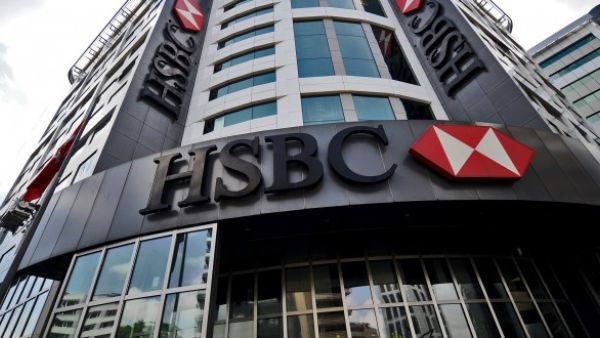BLOM, the second leading Lebanese bank, took the first step Wednesday in acquiring highly coveted HSBC operations in Lebanon. In a brief statement, BLOM announced it has signed an agreement to acquire the assets and liabilities of HSBC Bank Middle East Limited. It added that this acquisition is subject to regulatory approval from the Central Bank and expected to be completed during the first half of 2017.
“As of June 30, 2016, HSBC Bank Middle East Limited had three branches in Lebanon and approximately $953 million in total assets,” the statement said.
The bank did not disclose any details about the price it will pay for the acquisition of HSBC’s retail business in Lebanon.
A source told The Daily Star the price has not been determined yet.
“This will depend on net asset value and balance sheet on the date of change of control. The two sides have agreed on the equation but not the amount yet,” the source said.
The statement said that this acquisition falls under BLOM’s strategy of expanding its customer base and diversifying its assets and revenues.
“The transaction will help BLOM Bank expand its corporate and commercial businesses as well as its retail activities. BLOM Bank will ensure employment continuity to all HSBC current employees and is committed to a smooth transition for all clients,” it added.
HSBC has been seeking to divest businesses, including in Brazil to Turkey, as part of CEO Stuart Gulliver’s plan to boost profitability and pay higher dividends to shareholders.
HSBC has operated in Lebanon since 1946 and has offices in Dora, Ras Beirut and St. Georges Bay, according to its website.
The bank employs around 200 people in the country.
Bankers say that although HSBC in Lebanon is rather small compared to other leading banks in the country, it nevertheless has an important customer base and very qualified staff.
Most foreign-owned banks operating in Lebanon exit the market as part of an overall restructuring plan.
But sources stressed that the other reason for the exit of foreign-owned banks is due to the fierce competition from leading Lebanese banks that control over 80 percent of market share.
BLOM unaudited net profits in the first nine months of 2016 jumped by more than 18 percent to $344 million compared to the same period of 2015. “The results show BLOM Bank’s solid performance during that period, despite the political paralysis in Lebanon and instability in the region. Net profit increased to $344.08 million at end September 2016, up by 18.74 percent from the same period last year, and driven by higher profits at the bank’s foreign units,” the bank said in October.








